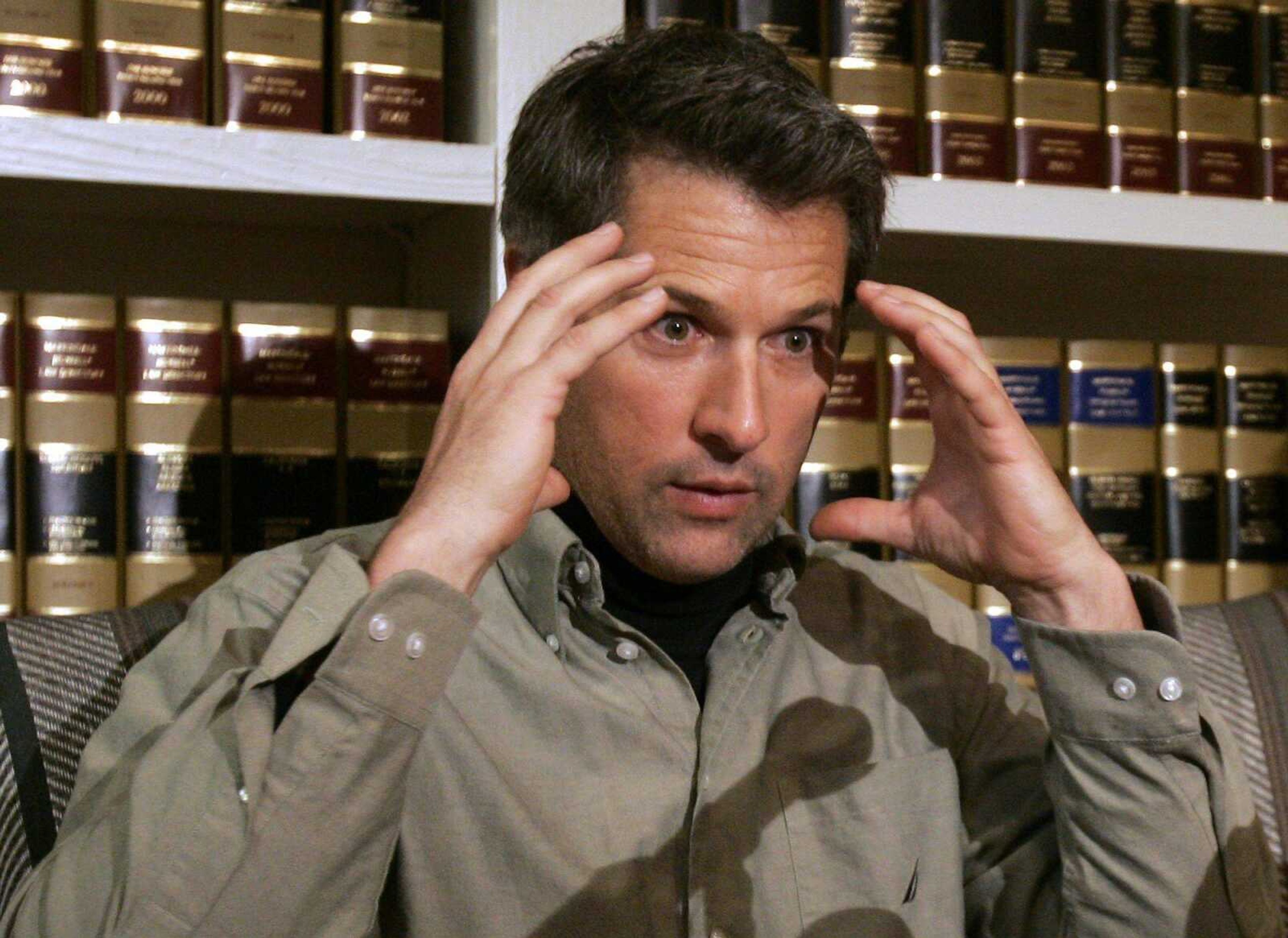Networks blur policy of not paying for interviews
NEW YORK -- Policies forbidding payment for news interviews are being increasingly blurred by U.S. television networks vying for access to accidental celebrities and photos. Three of the past month's accidental celebrities -- Jasper Schuringa, the Dutch tourist who helped thwart an attack on a Detroit-bound plane; David Goldman, who took a custody fight for his son to Brazil; and the White House party-crashing Salahis -- have either sought or received goodies from TV networks eager to hear their stories.. ...
NEW YORK -- Policies forbidding payment for news interviews are being increasingly blurred by U.S. television networks vying for access to accidental celebrities and photos.
Three of the past month's accidental celebrities -- Jasper Schuringa, the Dutch tourist who helped thwart an attack on a Detroit-bound plane; David Goldman, who took a custody fight for his son to Brazil; and the White House party-crashing Salahis -- have either sought or received goodies from TV networks eager to hear their stories.
Schuringa gave interviews to outlets that had agreed to purchase blurry cell phone images he'd taken of a man who authorities say tried to use explosives to take down the plane. Goldman and his son accepted NBC's offer of a ride home from Brazil on a charter airplane.
Representatives for Michaele and Tareq Salahi, who embarrassed the Obama administration by sneaking into a state dinner, were reportedly seeking six-figure bids from networks to tell their story.
Policies against paying for interviews are in place to avoid distorting the news. The concern is that news subjects will change their stories to make them more valuable or please those who paid them.
Evasion efforts seem centered primarily on ultra-competitive morning news shows and prime-time magazines. These outlets now fight for stories that might have been considered tabloid fodder years ago, often against websites or other outlets that won't hesitate to pay for an interview or information.
News organizations now frequently pay interview subjects for the use of personal photos or videos.
It's an increasingly easy dodge in these days of cell phone cameras, when there are usually visual images available to accompany an interview.
Morning shows will often bring an interview subject to New York and cover expenses. It's not payment for an interview, but it can be a nice vacation.
Networks can skirt ethics policies by putting their entertainment divisions in charge of an interview, said Nicolla Hewitt, a longtime network news booker. These would seem most likely in cases involving major celebrities.
"Do I think it's right? No," Hewitt said. "But is it the new reality? Yes."
Paul Friedman, a veteran news executive and CBS News senior vice president, said there's a generational change with more people in the industry who argue that the old standards are too rigid.
The Schuringa case led Foster Kamer, a Gawker.com writer, to mock the network news divisions. Gawker has acknowledged that it paid for a story last fall where a collaborator to Richard Heene provided evidence that the "balloon boy" episode was a hoax.
"Mainstream outlets who hold themselves in higher regards than those [like ours] who openly admit ponying up for a story are doing the same thing themselves, the sole difference being: We don't feel the need to lie about it," Kamer wrote. "Why do they?"
Paul Levinson, head of the communications department at Fordham University, said he's been paid for interviews by the British Broadcasting Corp. "I'm not allergic to money," he said. He said he can't recall a case where the story was distorted because money was exchanged and argues that the policy doesn't make sense.
"It has always been the case that our free press operates in a capitalist economy -- meaning money is involved, whether we like it or not," he said.
Networks have a cadre of paid consultants, like former generals or national security experts who share insights when a complicated story breaks that involves their topic. There was a time they'd do it for free for the attention it offered, Friedman said.
Even with policies in place that prohibit payment of interview subjects, it's interesting how many news subjects think they can cash in. And how quickly: Schuringa had wrestled with the Detroit terror subject and dragged him to the front of the plane yet still had the presence of mind to snap photos when authorities came.
It's hard to know how frequently evasion practices are taking place, said Kelly McBride, ethics group leader at the Poynter Institute think tank. They don't usually become known unless the interview subjects talk about it or disgruntled network officials leak the news, as happened with the Salahis.
Reporters at local TV stations or newspapers that don't pay for interviews are more frequently meeting news subjects who won't talk unless they're paid, McBride said.
"If we all drew a line again, maybe we could stop this," Friedman said. "But that's probably hopelessly naive. It's out of the bottle."
On the Net:
Connect with the Southeast Missourian Newsroom:
For corrections to this story or other insights for the editor, click here. To submit a letter to the editor, click here. To learn about the Southeast Missourian’s AI Policy, click here.








